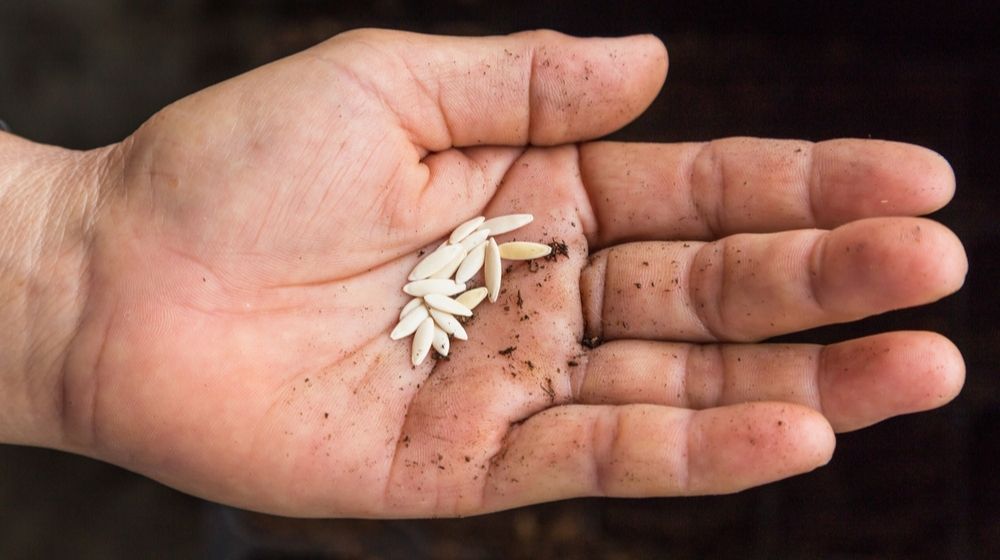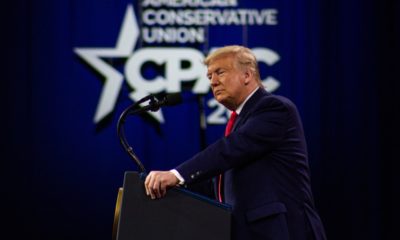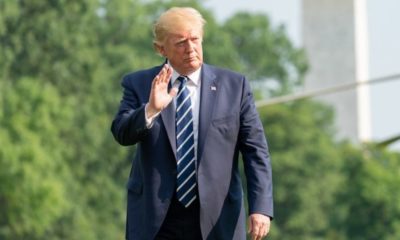Breaking News
Unsolicited Seeds Being Sent from China to Multiple U.S. States

Officials are urging residents not to plant the seeds, and to turn them in along with their mailing pouches.
Agriculture departments in Arizona, Florida, Georgia, Kansas, Kentucky, Louisiana, Maryland, Minnesota, North Carolina, Ohio, Texas, Virginia, and Washington State have all reported residents receiving unsolicited seed packets in the mail. The mailing pouches used indicate that the seeds originated in China and were mailed by “China Post.”
In some cases, the envelopes and pouches were labeled as attractive items such as “jewelry,” “earbuds,” or “toys.” The types of seeds in the packets were not immediately identifiable by officials. While not directly considered dangerous, the seeds could easily be invasive species or weeds.
When planting any seeds, it is recommended to do your research and buy from a reputable source. Seeds can be genetically engineered, contain harmful pesticides and diseases, and can be crossbred to create certain characteristics.
Several agriculture departments are picking up the seed packets for proper disposal, including in Louisiana. Kentucky’s agriculture commissioner, Ryan Quarles, said to “put the package and seeds in a zip lock bag and wash your hands immediately.” Residents that have already planted the seeds are being told to destroy whatever has grown.
Michael Wallace, a spokesman for the Virginia Department of Agriculture and Consumer Services, reported that their department had received nearly 1,000 calls about unsolicited seeds. In addition to Chinese origin, it appears that some seed pouches are arriving from Uzbekistan.
The U.S. Agriculture Department’s Animal and Plant Health Inspection Service (APHIS) has been notified about the seed packages, and is working with U.S. Customs and Border Protection to prevent unlawful entry of prohibited seeds.
“Please hold onto the seeds and packaging, including the mailing label, until someone from your state department of agriculture or APHIS contacts you with further instructions,” said Cecilia Sequeira, a spokeswoman for APHIS. “Do not plant seeds from unknown origins.”
Seed introduction is regulated in the United States; when a new seed arrives, APHIS will grow it first to determine if it contains disease. Unidentified seeds can contain plant pathogens or insects that become invasive.
There are multiple theories on why China would send thousands of unsolicited and unidentified seed packets to the U.S. In a more mild theory, the Ohio police suggest that this is a “brushing” scam, where a vendor creates false positive reviews online after sending an inexpensive item to a person, later using their identity as a satisfied and verified customer.
More sinister theories suggest that China is sending disease into the United States through multiple channels. COVID-19, which was first believed to be contracted through the eating of a raw bat in a Chinese marketplace, was later traced to a laboratory that was known for leaking sensitive materials and biological matter.
Now, after infecting hundreds of thousands of Americans, is China’s next move directed at our food chain or quality of soil?
If you have received any unsolicited packages from China, seal the contents and the envelope in a bag and wash your hands immediately. Contact officials for proper disposal of the items.
UP NEXT:













3 Comments
I was sent a package from China and it was seeds
Biological warfare???
My thoughts exactly